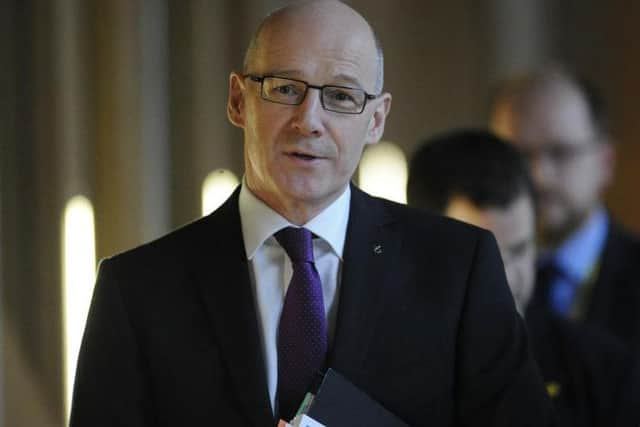Why is the Scottish Government trying to bring in the '˜Named Person' act?
The Scottish Government believes its plan to appoint a “named person” to monitor the welfare of every child north of the border would “bring consistency, clarity and coherence to the sharing of information about children’s and young people’s wellbeing”.
Critics have dubbed it a “snooper’s charter”.
Despite falling at a significant legal hurdle in 2016, the scheme has been revised and is part of the current programme for government.
Advertisement
Hide AdAdvertisement
Hide Ad

Ministers have set aside £1.2 million to give a day’s training to the teachers, health visitors and nurses who are expected to take on the named person’s role.
What it does
The Scottish Government first proposed giving all persons under the age of 18 access to a named person under the Children and Young People (Scotland) Act 2014.
“Most children and young people get all the help and support they need from their parents, wider family and community, but sometimes, perhaps unexpectedly, they may need a bit of extra help,” a statement on the Scottish Government website explained.


The law was due to come into force across the country in August 2016 following pilot projects in several areas including the Highlands, which the Barnardo’s charity hailed as a ‘great success’.
It was intended to be single point of contact if a child, or their parents or carers, wanted information or advice.
Guidance teachers, headmasters, health visitors or midwives were envisaged as being the named person in the vast majority of cases.
They would only offer advice when requested from a child or parent, or when “wellbeing needs are identified”.
Ministers stressed that most families would see little or no difference to current arrangements - with the scheme merely formalising existing structures.
Opposition
Advertisement
Hide AdAdvertisement
Hide AdThe named person plan has faced consistent opposition from the Scottish Conservatives.
The party’s education secretary, Liz Smith, said in September: “The SNP thinks it is protecting young people by imposing a named person on every child, when in fact it risks making things worse.
“Social workers are understandably concerned about their workload, their reputation and above all their ability to protect those who need help the most.
“That’s why the nationalists should swallow their pride and scrap named person proposals altogether.”
Labour, despite voting in favour of the initial proposals in 2014 along with the SNP and Lib Dems, later called for a “pause” in its roll out, describing the legislation as a “mess”.
The Law Society has warned practitioners of named person would need lawyers “on speed dial” in relation to confusion over information sharing.
The NO2NP campaign, which is backed by The Christian Institute among other organisations, forced a judicial review at the Supreme Court of the plan.
They described the bill as a “draconian Big Brother proposal” and “an utter shambles from the start, representing an interference in family life and a fundamental breach of European human rights laws on privacy and information sharing”.
Delay
Advertisement
Hide AdAdvertisement
Hide AdThe plan was kicked outlast year by the UK Supreme Court, which found that information-sharing provisions in the legislation were incompatible with the right to privacy and family life as set out in the European Convention on Human Rights (ECHR).
But education secretary John Swinney immediately pledged to bring back the plans in a revised form.
Scotland on Sunday columnist Dani Garavelli summed up the reaction to the court ruling. “It says a lot about the state of Scottish politics that the immediate response to the Supreme Court judgement on the Named Person policy was not a sober assessment of its conclusions or an analysis of the lessons that could be learned but a binary blame-laying exercise of grotesque proportions,” she said.
Revised plan
The revised legislation requires Scottish ministers to publish a code of practice for professionals on how information should be shared.
Mr Swinney this week revealed the decision to provide them with a draft and illustrative code without the necessary consultation had backfired.
He said: “I thought it would be helpful to the committee to have the look of what a code of practice might be like.
“I accept that has created some confusion and uncertainty amongst stakeholders.”
Tory MSP Oliver Mundell has asked how confident the government was about the legislation withstanding another legal challenge.
Advertisement
Hide AdAdvertisement
Hide AdMr Swinney said an expert panel with an independent chair would be established to ensure the code is “workable, comprehensive and user-friendly”.
The government will also lead a positive awareness-raising campaign about the named person scheme and will commit further financial resources “to assist implementation beyond the first year of introduction”, he said.
Mr Swinney also confirmed he would amend the bill to give MSPs final approval of the code of practice.
